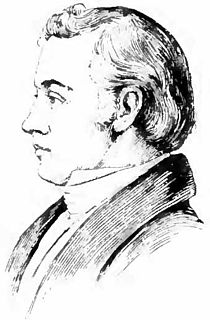A Quote by Catherine the Great
The laws ought to be so framed as to secure the safety of every citizen as much as possible. ... Political liberty does not consist in the notion that a man may do whatever he pleases; liberty is the right to do whatsoever the laws allow. ... The equality of the citizens consists in that they should all be subject to the same laws.
Related Quotes
Does man's freedom consist in revolting against all laws? We say no, in so far as laws are natural, economic, and social laws, not authoritatively imposed but inherent in things, in relations, in situations, the natural development of which is expressed by those laws. We say YES if they are political and juridical laws, imposed upon men by men.
To suppose arms in the hands of citizens, to be used at individual discretion, except in private self-defense, or by partial orders of towns, counties or districts of a state, is to demolish every constitution, and lay the laws prostrate, so that liberty can be enjoyed by no man; it is a dissolution of the government. The fundamental law of the militia is, that it be created, directed and commanded by the laws, and ever for the support of the laws.
Just and true liberty, equal and impartial liberty, in matters spiritual and temporal is a thing that all men are clearly entitled to by the eternal and immutable laws of God and nature, as well as by the laws of nations and all well-grounded and municipal laws, which must have their foundation in the former.
Laws, it is said, are for the protection of the people. It's unfortunate that there are no statistics on the number of lives that are clobbered yearly as a result of laws: outmoded laws; laws that found their way onto the books as a result of ignorance, hysteria or political haymaking; antilife laws; biased laws; laws that pretend that reality is fixed and nature is definable; laws that deny people the right to refuse protection. A survey such as that could keep a dozen dull sociologists out of mischief for months.
That we suffer so much today under whatsoever flag we live is proof positive that constitutions and laws, when framed by the early advocates of human liberty, never included and were never intended for us as a people. It is only a question of sheer accident that we happen to be fellow citizens today with the descendants of those who, through their advocacy, laid the foundation for human rights.





































